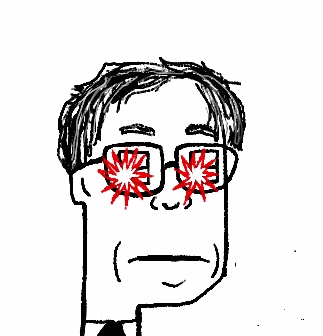[美]托马斯·内格尔:《你的第一本哲学书》,宝树译,当代中国出版社2005年2月
今天很多事情,没有完成读书预定的任务,为了勉强凑够一天一本,便翻出这本最最短小的哲学书来,通读了一遍。
这本书实在是太短了,在网上找到了它的英文电子版,英文仅2万词出头,中文版定价15块钱,唉……
不过这本书倒还不错,从中文版的标题(英文标题为What Does It All
Mean)就看得出,它是写给那些对哲学几乎一无所知而对于理性和思辨有点兴趣的年轻人,对于我来说,既然已经多少读了好些哲学书了,这本书并不怎么适合我,只是打发时间罢了。
作者以九个“问题”为线索展开了全书的讨论,这些讨论都是刨根问底的追问和反思,这些问题多是哲学中的核心问题(比如认识、心灵、语词、自由意志、死亡、意义等),按照张祥龙的讲法,都是“边缘问题”,这些问题不能涵盖今日哲学界的争论热点,但这些确实都是哲学中最基本的问题。
在讨论中,作者几乎没有任何“立论”,而始终在做追问——“本书的目的不是要给出答案——而是以一种非常平易的方式把你引向这些问题,使得你自己能够对这些问题感到疑惑。与其先学上一大堆哲学理论,不如先对这些理论所要尝试解答的哲学问题产生疑惑。(第5页)”
我把“哲学史”看成由“问题”串成的,而不是以经典著作或人物流派串成的。在去年上哲学导论课时,我就坚持说即便要说“哲学就是哲学史”,“问题”还是最关键的;前段时间与李老师谈话中我也提到说:即便说哲学史也是有“台阶”的,那么这台阶应该是“问题”构成的。而作者对“问题”的重视是我赞赏的——“本书不拟讨论过去的伟大哲学著作,或是这些著作的文化背景。哲学的核心在于一些特定的问题。而在面对这些问题时,具有反思能力的心灵就会自然而然地感到困惑。开始学习哲学的最好方式就是直接思考这些问题。一旦开始了这种思考,你就可以更好地理解那些想要解决同样问题的人们的著作了。(第2页)”当然,正如中文版标题所言,这是你的“第一本”哲学书,它的意义只是在于引出你的困惑、激发你探求答案的愿望,从而吸引你读更多的哲学书。而经典著作对于你探求答案是最有帮助的,如果要“做哲学”,经典著作当然是极为关键的,阅读是哲学研究中的主体,需要投入最多的精力,只是不要忘记对“问题”的思索、讨论、回答和实践则是哲学研究的出发点、主线索及落脚点。如果没有贯穿始终的“问题”意识,哲学研究便好像是一个人没有眼、没有脊柱、没有脚——不知方向、瘫软散乱、寸步难行,肌肉再强壮也毫无意义。
关于作者对问题的具体探讨方式,我不想说什么,这些思考我们只要也都可能做出,只不过作者的反思比一般人更为系统、更为彻底罢了。“大概14岁左右,许多人就开始独自思考哲学问题:什么东西真实存在?我们能够确切地知道某事吗?是否真的有是非对错?生命有意义吗?死亡是结束吗?几千年来,关于这些问题有许许多多哲学著作,但是,哲学的素材直接来自与我们生活于其中的使节以及我们与它之间的关系,而不是以往的著作。因此,即使是那些从未读过这类著作的人,也会一而再、再而三地想到这些问题。(第1~2页)”事实上,我并不怎么推荐这本书,因为作者毫无立论,因而如果是一位懒惰的人——他既不愿意自己进一步深入思考(在得到答案之前,追思汪汪是痛苦的,甚至得到的答案或许更为痛苦),更不愿意阅读繁多而枯燥的哲学著作,那么这些“困惑”便可能变成“困扰”,因为哲学反思无疑会把许多简单清楚、自然而然的事情搞得无比复杂、令人发晕……所以,只有对于那些有可能继续深入地阅读和思考的人,而又几乎没有看过哲学类的书籍、又只愿意先读一本足够短的——短到在书店里架子旁站着就能读完的——小书的年轻人,我才推荐这本书,不过我仍然感觉,或许在反思的同时适当给出一些建设性的参考意见以及穿插着提供一些哲学资源和知识介绍作为一本哲学导论的读物将更好。我仍旧首推《哲学之树》。
下面摘录英文版的“导言”部分:
This book is a brief introduction to philosophy for people who don’t know
the
first thing about the subject. People ordinarily study philosophy only
when theygo to college, and I suppose that most readers will be of college
age or older.But that has nothing to do with the nature of the subject, and
I would be veryglad if the book were also of interest to intelligent high
school students witha taste for abstract ideas and theoretical
arguments—should any of them read it.Our analytical capacities are often highly developed before we have learned
a
great deal about the world, and around the age of fourteen many people
start tothink about philosophical problems on their own—about what really
exists,whether we can know anything, whether anything is really right or
wrong, whetherlife has any meaning, whether death is the end. These problems
have been writtenabout for thousands of years, but the philosophical raw
material comes directlyfrom the world and our relation to it, not from
writings of the past. That iswhy they come up again and again, in the heads
of people who haven’t read aboutthem.This is a direct introduction to nine philosophical problems, each of
which
can be understood in itself, without reference to the history of
thought. Ishall not discuss the great philosophical writings of the past or
the culturalbackground of those writings. The center of philosophy lies in
certain questionswhich the reflective human mind finds naturally puzzling,
and the best way tobegin the study of philosophy is to think about them
directly. Once you’ve donethat, you are in a better position to appreciate
the work of others who havetried to solve the same problems.Philosophy is different from science and from mathematics. Unlike science
it
doesn’t rely on experiments or observation, but only on thought. And
unlikemathematics it has no formal methods of proof. It is done just by
askingquestions, arguing, trying out ideas and thinking of possible
arguments againstthem, and wondering how our concepts really work.The main concern of philosophy is to question and understand very
common
ideas that all of us use every day without thinking about them. A
historian mayask what happened at some time in the past, but a philosopher
will ask, “What istime?” A mathematician may investigate the relations among
numbers, but aphilosopher will ask, “What is a number?” A physicist will ask
what atoms aremade of or what explains gravity, but a philosopher will ask
how we can knowthere is anything outside of our own minds. A psychologist
may investigate howchildren learn a language, but a philosopher will ask,
“What makes a word meananything?” Anyone can ask whether it’s wrong to sneak
into a movie withoutpaying, but a philosopher will ask, “What makes an
action right or wrong?”We couldn’t get along in life without taking the ideas of time,
number,
knowledge, language, right and wrong for granted most of the time;
but inphilosophy we investigate those things themselves. The aim is to push
ourunderstanding of the world and ourselves a bit deeper. Obviously it isn’t
easy.The more basic the ideas you are trying to investigate, the fewer tools
you haveto work with. There isn’t much you can assume or take for granted.
So philosophyis a somewhat dizzying activity, and few of its results go
unchallenged forlong.Since I believe the best way to learn about philosophy is to think
about
particular questions, I won’t try to say more about its general nature.
The nineproblems we’ll consider are these:Knowledge of the world beyond our minds
Knowledge of minds other than our own
The relation between mind and brain
How language is possible
Whether we have free will
The basis of morality
What inequalities are unjust
The nature of death
The meaning of life
They are only a selection: there are many, many others.
What I say will reflect my own view of these problems and will
not
necessarily represent what most philosophers think. There probably
isn’tanything that most philosophers think about these questions anyway:
philosophersdisagree, and there are more than two sides to every
philosophical question. Mypersonal opinion is that most of these problems
have not been solved, and thatperhaps some of them never will be. But the
object here is not to give answers—not even answers that I myself may think
are right—but to introduce you to theproblems in a very preliminary way so
that you can worry about them yourself.Before learning a lot of
philosophical theories it is better to get puzzledabout the philosophical
questions which those theories try to answer. And thebest way to do that is
to look at some possible solutions and see what is wrongwith them. I’ll try
to leave the problems open, but even if I say what I think,you have no
reason to believe it unless you find it convincing.There are many excellent introductory texts that include selections from
the
great philosophers of the past and from more recent writings. This short
book isnot a substitute for that approach, but I hope it provides a first
look at thesubject that is as clear and direct as possible. If after reading
it you decideto take a second look, you’ll see how much more there is to say
about theseproblems than I say here.
2006年2月17日
最新评论
古
2006-05-23
15:08:05
柯林武德的《自然的观念》毫无疑问是看过的,毫无疑问地当然是很不错。但《历史的观念》还没有看。
至于“哲学就是哲学史”的说法,我觉得要看究竟如何去理解“历史”。“历史”的观念是相当重要的,马恩说“只有一种科学,那就是历史科学”,确实很有深意。我们所弘扬的“博物学”,其实正是“自然史”。不过现代的自然科学似乎遗忘了“博物精神”,事实上同时也确实了“历史”,同时,现代的历史学受近代科学浸染太重,其意味也不太一样了。我认为要提“哲学就是哲学史”,就首先要弄清“历史”是什么。如果是“死的历史”、“过去的事”、“史料堆砌”等等,那我就坚决不能同意“哲学就是哲学史”这一提法。
Geoy
2007-01-01
00:30:00
同志,你好。无意中发现你的这篇博客,我很想要这本书的英文版,不知道哪能下载或能否帮忙传给我。表示感谢!
古
2007-01-04
12:49:40
很早前在一个论坛里找到的,现在忘了,下载的文件也早删了……
UNIC
2007-01-05
16:29:48
这本书以前也见过,而且当时也很想买,但是太薄了,和那么高的价格实在不相符合么……
谢谢介绍了。
海伦
2007-09-08
19:34:02 匿名 222.71.177.151
真的很有趣吧?我对哲学很感兴趣哦
~

![[美]托马斯·内格尔:《你的第一本哲学书》](https://yilinhut.net/wp-content/uploads/2024/02/banner-1500x250.png)
![[美]托马斯·内格尔:《你的第一本哲学书》](https://yilinhut.net/wp-content/uploads/2024/02/banner-941x200.png)